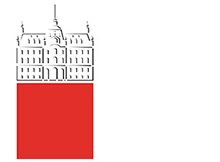Conditions for enrollment
Enrolment in the interdisciplinary doctoral study programme Biosciences is open to candidates who have completed:
• a second-cycle study programme;
• a study programme leading to professions regulated by EU directives, or another integrated master‘s degree programme evaluated at 300 ECTS credits;
• a study programme leading to an academic higher education qualification, adopted before 11 June 2004;
• a master of science degree or a study programme leading to specialisation, if the candidate has previously completed a programme leading to an academic higher education qualification. Course units totalling 60 ECTS credits are recognised for these candidates based on their application, as provided by law;
• a study programme leading to a specialisation following a completed professional higher education programme. Additional study requirements for individual fields totalling 30 to 60 ECTS credits are determined for these candidates by the Biosciences Programme Council.
Enrolment in the doctoral programme is also open to graduates of foreign universities. The equivalence of previously acquired education in a foreign country will be established by means of the procedure for the recognition of foreign qualifications for the purposes of further education in accordance with the Statutes of the University of Ljubljana.
Criteria for selection for limited enrollment
1. Success in higher education studies to date
The average grade of studies (without the diploma grade) is scored:
Average success is scored linearly, by the formula: 4 x grade – 20.
Calculation of average grade:
The average grade of previous higher education studies of students who have completed university education, in which they enrolled before 11 June 2004, or 1st and 2nd cycles of study or a single study program or specialization after completion of higher professional studies, is calculated by weighting, namely such that the average grade of each cycle of study is weighted by the number of years of study in a particular cycle, summed for all completed cycles together and divided by the total number of years of study.
2. Research or professional work, awards
a) A scientific article, monograph or patent accepted into procedure in RS (Cobiss type 1.01 –, 1.02, 1.03, 1.16, 2.01, 2.18) – up to 5 points (first authorship 5 points, co-authorship 2 points)
b) Active participation at a scientific conference (Cobiss type 1.06, 1.08, 1.10, 1.12) – 2 points
c) Professional article in the field of study (Cobiss type 1.04) - 2 points
d) Awards connected with study; on the university level (5 points); on the level of a member, or other award (2 points)
The maximum number of points that a student can obtain is 40. If the composite score according to the above criteria exceeds 40 points, the student shall receive a maximum of 40 points. In the event of restricted enrolment, candidates with a higher total number of points will be selected.
If there are a number of students at the lower boundary with the same number of points, they will be invited for an interview and candidates will be selected from among them.
The decision on the acceptance of candidates shall be made by the Program Council of Biosciences.
Criteria for recognising knowledge and skills obtained prior to admission to the programme
Knowledge and skills obtained through formal, informal and experience learning prior to admission to the programme will be recognised during selection with limited admission in accordance with the Criteria for Accreditation of Study Programmes. The competent commission will decide on recognition of knowledge and skills obtained by a candidate prior to admission to the programme on the basis of a written request from the candidate and submitted evidence (certificates and other documents) which show successfully obtained knowledge and the content of such knowledge. If there is no limited admission in an individual study year, the extent and content of such knowledge and skills will be evaluated by the ECTS and may, on the basis of the judgement of the competent commission, replace one elective subject or part of a basic subject selected in doctoral studies in Biosciences.
In recognising such knowledge and skills, the following will be taken into account:
-
professional specialisation,
-
other diploma from a higher education institution which is thematically linked to the field of doctoral study,
-
published scientific work, patents etc.,
-
professional further training which is possible to evaluate in terms of credits.


